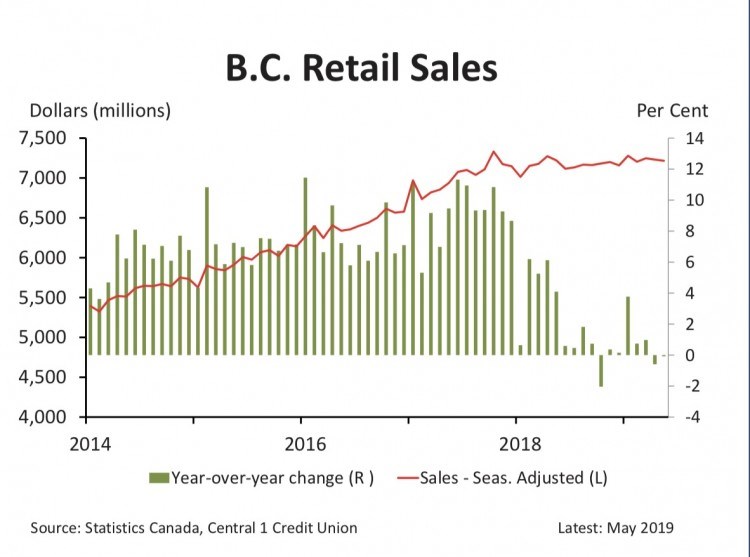What happened: Statistics Canada data released July 19 shows Metro Vancouver’s retail sales performance severely lagging in comparison with Canada’s two larger metropolitan areas.
Why it matters: The retail sector helps drive the provincial economy and was worth almost $86 billion B.C.-wide in 2018.
Metro Vancouver retail sales slumped 0.6% to $3.369 billion in May, compared with the same month in 2018, the nation’s number cruncher revealed July 19.
That compares with strong gains in retail sales in Canada’s largest cities. Toronto generated $8.091 billion in May, up 6% from the same month a year earlier. Montreal saw a 5.2% bump in retail sales in May, to $5.477 billion, compared with $5.205 billion in the same month a year earlier.
This is not just a one-month phenomenon. Retail sales in Montreal in the first five months of 2019 were $26,906,435, up 7.2% from the same five months last year. Toronto's retail sales are up 5.2% to $39,586,715 in the first five months of 2019, compared with the same period a year ago. Vancouver, in contrast, generated $16,727,930 in retail sales in the first five months of 2019, or almost 1% less than the same time period a year ago.
While the Canadian retail sector as a whole saw a slight 1% increase in May compared with the same month a year earlier, B.C. retail sales in May were down 0.1% compared to May 2018.
The main drags on B.C. retail sales were motor vehicles and parts (down 2.6%) and building material, garden equipment, and related supplies (down 3.2%), according to the Central 1 Credit Union's July 19 B.C. Briefing.

It is unclear exactly why B.C. retail sales have been flat to down, after peaking in late 2017, but retail spending is often seen as a sign of consumer confidence. The Vancouver real estate market has struggled of late with the MLS Home Price Index composite benchmark price for all residential properties in Metro Vancouver hitting currently $998,700 in June. That is down 9.6% compared to June 2018.




